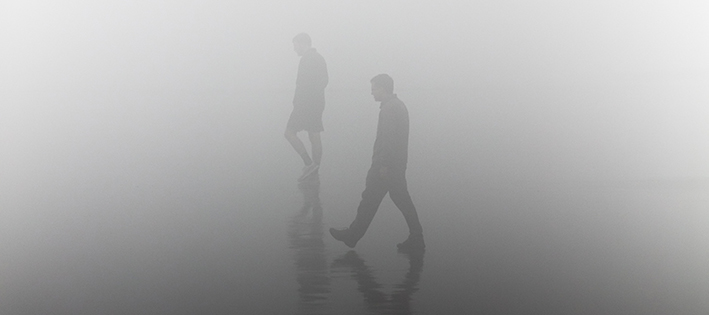
How do race and religion impact life chances? Maisha Islam, of the Centre for Student Engagement, explores issues around race and religion in a series of posts for the University blog. In this first post, she argues that the subtle ways in which society reacts to individuals' difference(s) are the most problematic, especially in creating and producing inequality and bias.
Race and religion will always be the most interesting, yet widely uncomfortable, topics to discuss in society. This makes them both unique in that they hold a distinct visibility and also an invisibility: most of the time we barely scratch the surface of what it means to have a race and be of a religion, yet their impact is felt by affected individuals for their entire lives.
I am personally at an interesting intersection - being both British-Bangladeshi and an overtly practising Muslim - to be able to speak about my experiences of having two (or even three if you count my gender) social characteristics that have meant my life experiences are vastly different to those who don't share these. In a series of blog posts, I hope to shed light on some of the ways our race or religion deeply impact our life chances in the hope of enabling all individuals to confront typically understated aspects of life.
From a sociological point of view, both terms can be widely contested and are often regarded as social constructs, ie labels that have been created and defined by particular social groups. For example, what it means to be Black can be extremely different when looking at the experiences of Black people in Britain, to Black people in America. Similarly, the way Islam is practiced in Britain, shifts to how Islam is practiced in Malaysia.
Race is commonly understood as distinctive physical characteristics (eg skin colour) and religion implies holding a particular set of beliefs, values and practices to a God/Gods or supernatural entity. However, race and religion are both what society and individuals dictate them to be, and so the way in which they infiltrate life can be both subtle and loud.
It is the subtle ways in which society reacts to individuals' difference(s) which I believe to be the most problematic, especially in creating and producing inequality and bias.
Recently, there was a debate on BBC Question Time over racism in the UK, prompted by an audience member stating that: "The UK is one of the least racist societies across Europe". This person may have been referring to data collected by Harvard researchers based upon an Implicit Association Test. A visual map of implicit racial bias in Europe has been created which does indeed support that person's initial point, but this needs to be looked at more critically.
For example, even though one might not hold racist views, this does not negate from holding implicit bias or even unintentionally practising covert forms of racism or more so the obvious fact that racism still exists! In response to the statement on Question Time, a second audience member (a hijab-wearing young woman) questioned how it could be made, especially from the point of view of a White person. As the discussion got slightly heated, this second audience member was told to 'calm down'.
Healthy debate should be encouraged, but responses like the latter are just hidden ways of once again silencing those from minority groups without fully understanding their perspectives. This is where micro-aggressions come in. A micro-aggression is understood as the often-mundane verbal or non-verbal ways of communication which are often hostile, negative or derogatory in nature targeted towards those of 'marginalised' groups. Be it intentional or unintentional, I am sure the majority of us are guilty of these occasionally.
Racial and religious micro-aggressions may take the form of questions such as: "Where are you really from?" (Translation: "Why is your skin pigmented?"), or not being offered a leaflet in the street, for example, because your way of dress is slightly different.
In an age where PC culture irritates many of us, and so sometimes is counter-intuitive, I am not advocating for microscopic levels of policing each other's words or actions. Sometimes, there is nothing wrong with genuine interest about someone's background. However, imagine the frustration of constantly having your identity questioned which implicitly suggests that you cannot just be British, or when these assumptions affect how others interact with you on a daily basis.
I am simply advocating that, every once in a while, we all stop and evaluate the hidden ways in which we might all be treating others in this way...
Find out more about equality and diversity at the University of Wnchester here.